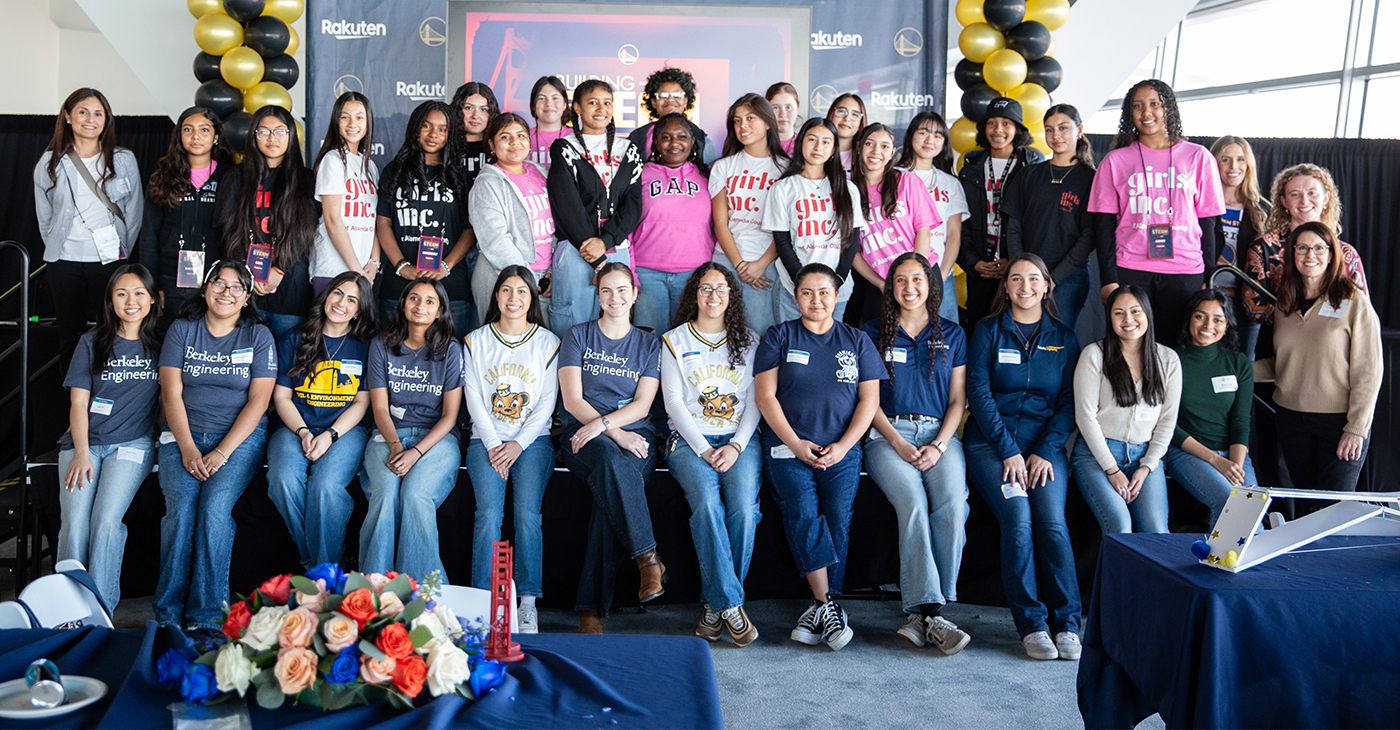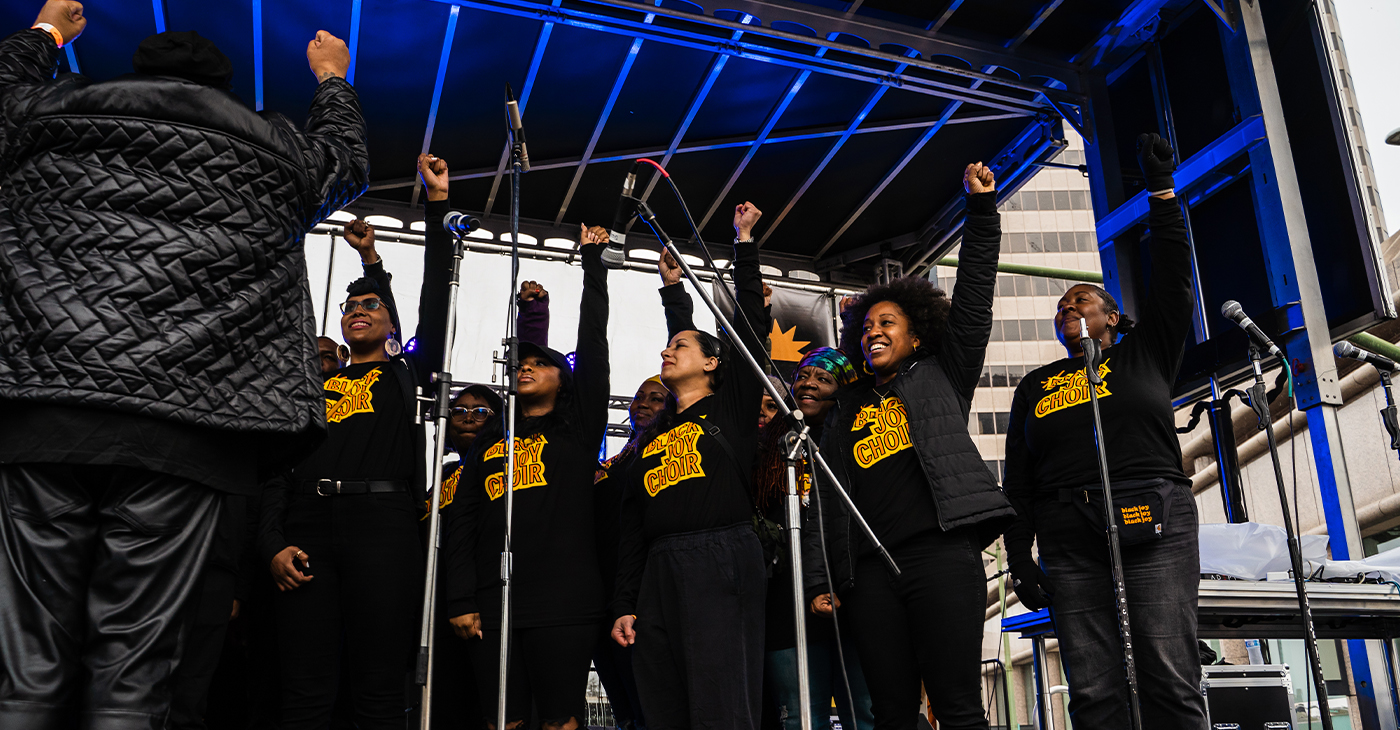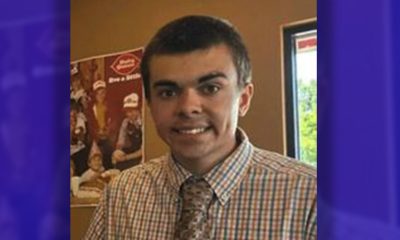Berkeley
OP-ED: Journalism in the Best Interest of the Child
By Daniel Heimpel
A fortnight ago, the appeals court for the Second Appellate District in California invalidated a court order that had eased media access to Los Angeles County’s otherwise closed juvenile dependency hearings.
This ends two years of intermittent sunshine on the complicated functioning’s of the largest child welfare system in the nation, and perhaps the world.
The appeals court decision hinges on how much discretion a judge should have in barring reporters, and has reignited the long-simmering debate about the costs and benefits of allowing reporters to be present at hearings where minors fates are decided.
While the March 3 ruling seemingly closed the door on the media, it also sets up the possibility of two developments: an appeal to the California State Supreme Court, or new legislation allowing greater media access to dependency proceedings not only in Los Angeles, but across the state.
In my opinion, the dispute could and should be resolved through legislation that promotes a new, higher journalism: one practiced in the best interest of the child. .
A Judge’s Discretion and the Burden of Proof
In February of 2012, a week after Michael Nash, the Presiding Judge of Los Angeles’ Juvenile Court, had issued his now invalidated order, a reporter and a lawyer from the Los Angeles Times showed up at a hearing involving a 15-year-old girl and her four younger siblings. The girl had been removed from her parents by the Department of Children and Family Services (DCFS) after her father had allegedly committed “brutal domestic violence” against her and her mother.
It was a tense and uncertain time at the Edelman Children’s Court in Monterey Park California, a sprawling labyrinth of court-rooms and offices set atop a hill where judges and lawyers change the life trajectories of as many as 30,000 children a year. Like many other juvenile courts that had allowed press in, the first few weeks of openness in Los Angeles were met with a herd of reporters keen on easy access.
The courts are already chaotic. Children, like A.L. and her siblings, are not alone in the hearing rooms. Attorneys, bailiffs, court referees, clerks, guardians ad litem and an intermittent cast of family members and social workers are all part of the swirling tide of professionals, paraprofessionals and consumers that make up the county’s vast child welfare system.
The Children’s Law Center of California (CLC) represents every child in Los Angeles County: its 100 lawyers average a caseload of 300 each. From the start, CLC had opposed media access. And in those strange days after Nash issued his order, CLC attorneys were throwing up objections to almost any journalist in the room.
It was through her CLC lawyer that A.L. objected to the Times’ presence.
Almost a month later, the judge in A.L.’s case ruled that the Times would be allowed into the court-room, despite CLC’s assertion that “the child is at an age (15) where children are extremely sensitive to the possibility of their private information being disseminated to others.”
A.L.’s lawyers filed a writ to override the court’s decision, which was denied, setting it up for appeal and the decision in A.L.’s favor published on March 3.
That decision hinges on the concept of judicial discretion and burden of proof. Judge Nash’s order compelled court referees to allow the press in, and only force them out if someone could show a “reasonable likelihood that such access will be harmful to the children’s best interest.”
In his original order, Nash cited the California Welfare and Institutions Code (which governs the dependency system) and two cases – Brian W. v. Superior Court and San Bernardino County Dept. of Public Social Services v. Superior Court – which both dealt with media access to juvenile proceedings.
In 1991, the San Bernardino Sun newspaper requested access to the juvenile court records and files of a sibling group, which had been removed from their home under awful, headline-grabbing circumstances. The attorneys for the siblings objected. Ultimately the court denied the Sun access to the records, but used its discretion to admit the reporter to the hearing under certain conditions.
The appellate court struck down that ruling, but clarified the law around media access significantly:
“Members of the press are persons having a direct and legitimate interest in the work of the court and may be permitted to attend such proceedings in the juvenile court’s discretion under Welfare and Institutions Code Section 346.”
The problem is that Section 346 can be read both as exclusionary and inclusionary to the press. The section reads:
“Unless requested by a parent or guardian and consented or requested by the minor concerning whom the petition has been filed, the public shall not be admitted to a juvenile court hearing.” But, “the judge or referee may nevertheless admit such persons as he deems to have a direct and legitimate interest in the particular case or work of the court.”
While, A.L. had a reasonable objection to the Los Angeles Times presence during the February 2012 hearing, and the Times’ attorney and reporter may have shown insensitivity by not respecting her wishes, it is unclear where judicial discretion had been infringed upon. The judge in that courtroom had the ultimate discretion to either uphold or deny the objection.
The appellate decision seems to argue that the overall environment of the court, where the presiding judge had issued an order bending the culture towards openness, was one where individual court referees were inhibited from exercising the discretion that code section and case law give them.
“We agree that press attendance at dependency proceedings may be allowed, and that the legislature intended to encourage it, as Brian W. tells us,” the majority wrote in this month’s opinion. “But both Brian W. and San Bernardino are also clear that press admittance to dependency hearings involves an exercise of the juvenile court’s discretion in the context of the unique facts of each case.”
Further, the majority opinion looks to shift the burden of proof on access back to the press.
“The press must ultimately persuade the court that the balance of competing interests should be weighed in its favors – that is, there is no reasonable likelihood that access will be harmful to the child’s best interests.”
It is on this question, the likelihood of harm to a child, that the entire debate falls, and where one can discern an opportunity to bridge the gap between needed privacy for child victims and the social change transparency can bring.
Cross posted with the Chronicle of Social Change. Read the full story here.
Activism
Golden State Warriors Program Is Inspiring Next Generation of Female Engineers
Breaking down barriers and biases that deter young girls from pursuing STEAM subjects is essential for creating a level playing field and ensuring equal opportunities for all. By challenging stereotypes and promoting a culture of inclusivity and diversity in STEAM fields, experts believe young girls can be empowered to pursue their interests and aspirations without limitations confidently. Encouraging mentorship, providing access to resources, and celebrating girls’ achievements in STEAM are all crucial steps in creating a supportive environment that fosters success.

By Y’Anad Burrell
The Golden State Warriors and e-commerce giant Rakuten are joining forces to inspire the next generation of female engineers through Building STEAM Futures, part of The City Calls campaign.
Organizers say the initiative is founded on the idea that science, technology, engineering, arts, and mathematics (STEAM) are crucial fields for innovation and progress, and empowering young girls to pursue careers in these areas is more important than ever. Studies consistently show that girls are underrepresented in STEAM fields, resulting in a gender disparity that limits potential and hinders diversity.
Breaking down barriers and biases that deter young girls from pursuing STEAM subjects is essential for creating a level playing field and ensuring equal opportunities for all. By challenging stereotypes and promoting a culture of inclusivity and diversity in STEAM fields, experts believe young girls can be empowered to pursue their interests and aspirations without limitations confidently. Encouraging mentorship, providing access to resources, and celebrating girls’ achievements in STEAM are all crucial steps in creating a supportive environment that fosters success.
On Saturday, March 8, International Women’s Day, the Warriors and Rakuten hosted 20 middle school girls from Girls Inc. of Alameda County at Chase Center’s Above the Rim for a hands-on bridge-building experience. The young girls from Girls, Inc. of Alameda County had an opportunity to design, build and test their own bridge prototypes and learn the fundamentals of bridge construction from the Engineering Alliance and the UC Berkeley Steel Bridge Team.
This STEAM experience for the girls followed the first session in January, where they took a behind-the-scenes tour of the Golden Gate Bridge, learning about its design and construction from industry experts. The City Calls campaign, tipped off with the unveiling the Warriors’ new bridge-themed City Edition jerseys and court design earlier this year.
Activism
Lawsuit Accuses UC Schools of Giving Preference to Black and Hispanic Students
The lawsuit also alleges UC is violating the Equal Protection Clause of the 14th Amendment and Title VI of the Civil Rights Act of 1964, which bars racial discrimination by federally funded institutions. In response, UC stated that race is not a factor in admissions, as per state law, and that student demographic data is collected only for statistical purposes.

By Bo Tefu, California Black Media
A lawsuit filed in federal court accuses the University of California (UC) of racial discrimination in undergraduate admissions, alleging that Black and Latino students are favored over Asian American and white applicants. The lawsuit, filed by the group Students Against Racial Discrimination, claims UC’s admissions policies violate Proposition 209, a state law passed in 1996 that prohibits the consideration of race in public education.
The lawsuit also alleges UC is violating the Equal Protection Clause of the 14th Amendment and Title VI of the Civil Rights Act of 1964, which bars racial discrimination by federally funded institutions.
In response, UC stated that race is not a factor in admissions, as per state law, and that student demographic data is collected only for statistical purposes.
Stett Holbrook, a spokesperson for the UC system, said the entity had not been served with the lawsuit.
“If served, we will vigorously defend our admission practices,” said Holbrook.
“We believe this to be a meritless suit that seeks to distract us from our mission to provide California students with a world-class education,” he said.
The complaint criticizes UC’s use of a “holistic” admissions process, arguing it replaces objective academic criteria with subjective considerations that disadvantage certain racial groups. It cites admission rate disparities at UC Berkeley, noting a decrease in Black student admissions from 13% in 2010 to 10% in 2023, compared to an overall drop from 21% to 12%.
The lawsuit follows the U.S. Supreme Court’s 2023 ruling banning affirmative action in college admissions, which has prompted challenges to race-conscious policies nationwide. The plaintiffs seek a court order preventing UC from collecting racial data in applications and request a federal monitor to oversee admissions decisions.
Activism
Black History Month in the Bay Features, Parades, Festivals and Speakers
Black History Month did not begin as Black History Month. In 1915 after the 13th Amendment was passed Carter G. Woodson and Jesse E. Moorland founded the Association for the Study of Negro Life and History (ASNLH). This organization sponsored the initiation of a national Negro History Week, which took place in February, the same week as Frederick Douglass’ birthday. During the Civil Rights Movement this transformed into the Black History Month we still celebrate today.

By Daisha Williams
Black History Month is a month that is centered in teaching, learning, and honoring the journey of Black people in America. Black people in America have faced discrimination, abuse, and every kind of mistreatment. Black History Month is about recognizing not only that history, but how far the community has come despite it, and celebrating Black joy.
Black History Month did not begin as Black History Month. In 1915 after the 13th Amendment was passed Carter G. Woodson and Jesse E. Moorland founded the Association for the Study of Negro Life and History (ASNLH). This organization sponsored the initiation of a national Negro History Week, which took place in February, the same week as Frederick Douglas’ birthday. During the Civil Rights Movement, this transformed into the Black History Month we still celebrate today.
There are many ways that people celebrate Black History Month and as always, the Bay Area has a little bit of everything.
Most popularly, the Eighth Annual Black Joy Parade will be taking place in Downtown Oakland on Feb. 23. The parade will begin at 14th and Franklin Streets at 12:30 p.m. There will be a festival after the parade ends lasting until 7 p.m. This is the largest Black Joy Parade and sure to be a fun time. Schools, community organizations, and performers can sign up to be in the parade by Feb. 6 on the Black Joy Parade website.
In line with the spirit of the month “From Black History to Black Futures” will take place on Feb. 23 from 2-5 p.m. in Vallejo. This event will show the breadth and beauty of Black life through showcasing speakers, artistic performances, and community booths. This free celebration is hosted by a community organization, Vallejo Building Black Power and Leadership, at 4380 Sonoma Blvd suite 224. The organizers ask that attendees register on Eventbrite because of limited space.
Similar events will be happening in San Francisco and San Leandro.
In San Francisco, Thrive City is hosting a free community event that includes performances of all kinds, from music to spoken word, with the headliner being August Lee Stevens. This event will take place at the Dance Mission Theater on Feb. 1 from 12-3 p.m. Though it is free, priority will be given to people who registered on Eventbrite.
In San Leandro, there will be the Black History Month RnB Day Market at 222 Davis St. This family-friendly event will be put on by the Downtown San Leandro Community Benefit District and include live music, dance performances and a fashion show. This free event will be on Feb. 15 from 12-6 p.m.
There are other ways to celebrate this month other than community festivals and block parties. For example, the College of Marin’s Umoja group is putting together a Black History Month Poetry Reading. This event will be free and take place on Feb. 19 from 12:40 to 1:30 p.m.
At the North Berkeley Senior Center there will be a Black History Month celebration hosted by the City of Berkeley, Health, Housing and Community Services, Mental Health Division. Keynote speaker Gigi Crowder, CEO of the Contra Costa County branch of the National Alliance on Mental Illness (NAMI) will be giving a talk on Feb 11 from 10 a.m. to 1 p.m.
A Black History Month celebration with line dancing, music, and food will be in the Richmond Memorial Auditorium on Feb. 22 1-3 p.m. with doors opening at 12:30. This event will be hosted by the City of Richmond and attendees must register in advance. Tickets are $15 and for more details contact 510-620-6793.
Musical expression has always been a vital part of Black culture, and Black people have contributed largely to the development of many music genres. Stockton Soul is honoring Black History Month with an ensemble created to highlight the legacy of Black music with influences like Curtis Mayfield and Isaac Hayes. The concert will be held on Feb. 15 with tickets for only $8 for adults.
-

 Activism3 weeks ago
Activism3 weeks agoWe Fought on Opposite Sides of the Sheng Thao Recall. Here’s Why We’re Uniting Behind Barbara Lee for Oakland Mayor
-

 Activism3 weeks ago
Activism3 weeks agoFaith Leaders Back Barbara Lee for Mayor, Criticize Candidate Loren Taylor for Dishonest Campaigning
-

 #NNPA BlackPress4 weeks ago
#NNPA BlackPress4 weeks agoRev. Dr. Jamal Bryant’s Black Church Target Boycott Mobilizes 150,000
-

 Activism3 weeks ago
Activism3 weeks agoOakland’s Most Vulnerable Neighborhoods Are Struggling to Eat and Stay Healthy
-

 #NNPA BlackPress4 weeks ago
#NNPA BlackPress4 weeks agoRecently Approved Budget Plan Favors Wealthy, Slashes Aid to Low-Income Americans
-

 Activism2 weeks ago
Activism2 weeks agoOakland Post Endorses Barbara Lee
-

 Activism3 weeks ago
Activism3 weeks agoGroup Takes First Steps to Recall District Attorney Diana Becton
-

 Activism4 weeks ago
Activism4 weeks agoOakland Post: Week of March 19 – 25, 2025






















































